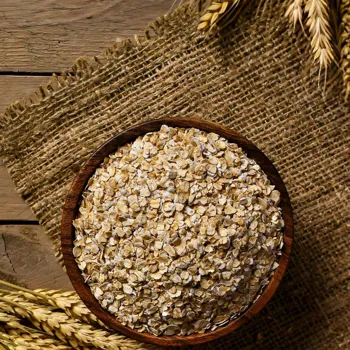Unlocking Wellness: Discover the Power of Essential Food Groups. Dive into how nutrition shapes your health and vitality
In the bustling rhythm of our daily lives, it's easy to overlook something as fundamental
as food. We often grab whatever is quick and convenient, but that might not be the best thing for our health. Nutrition, which is what we get from the food we eat, is super important for our overall wellness.
Think of your body as a car. A fancy car cant simply run without the right fuel; similarly, your body needs the proper nutrients to work efficiently, fight off diseases, and keep you feeling energetic and happy.
This article breaks down the six essential food groups that play a crucial role in keeping us healthy and vibrant. Focusing on these groups ensures your diet gives you the necessary building blocks for a good life.
It's about understanding what your body needs and making smart choices about what you eat.
Lets begin the journey of understanding why these food groups are important and how to include them in our diet.
The Power of Fruits: Sweetness with Benefits
Fruits are like nature's candy, but with a healthy twist! They are packed with vitamins, minerals, and fiber, all essential for the body's smooth functioning. Think of vibrant mangoes in the summer, juicy oranges in the winter, or the humble banana available throughout the year.

These aren't just tasty treats; they are a powerhouse of goodness. Fruits like berries are loaded with antioxidants, which help protect your cells from damage. Citrus fruits boost your immunity with Vitamin C, while bananas provide potassium for healthy blood pressure.
Adding a variety of fruits to your diet is a simple yet effective way to increase your energy levels, improve your skin, and reduce the risk of chronic diseases. Aim for at least two to three servings of different fruits daily.
You can slice them into your morning cereal, blend them into a smoothie, or simply enjoy them as a refreshing snack. Remember, different fruits offer different nutrients so create a colorful mix every day! Embrace the deliciousness and reap the health benefits of these gifts from Mother Earth.
Embrace what these colorful delights have to offer!
Vegetables: The Foundation of Good Health
Vegetables are like the unsung heroes of the plate – often overlooked, but incredibly vital. From leafy greens to colorful bell peppers, each vegetable brings a unique set of nutrients to the table. Leafy greens are rich in vitamins and minerals.
While different colored bell beppers provide multiple nutrietns. Vegetables serve as the building blocks for a healthy immune system and overall wellbeing. Eating more vegetables can help manage weight, improve digestion, and reduce the risk of heart disease and certain cancers.
Make it a habit to include a variety of vegetables in your meals. Saute them, steam them, roast them, or eat them raw in salads – the possibilities are endless! Explore local markets and try different vegetables to discover new favorites.
Remember to wash your vegetables, which can help get rid the dirt. Variety is the key to unlocking the full spectrum of benefits that vegetables offer. Make vegetable a regular inclusion in your plate.
Grains: The Energy Providers
Grains are a primary source of energy and come in many forms, like wheat, rice, and millets. While refined grains like white bread and white rice can provide a quick burst of energy, they lack the fiber and nutrients found in whole grains.

Whole grains, such as brown rice, whole wheat bread, and oats, are packed with fiber, vitamins, and minerals. These help you in maintaining regular blood sugar levels and helps with good digestion.
Including whole grains into your diet is a great way to promote sustained energy throughout the day and support overall digestive health. Start by replacing refined grains with whole grain options in your diet.
Choose whole wheat bread over white bread, brown rice over white rice, and add oats to your breakfast routine. Look for millets like ragi, jowar, and bajra, which are traditional Indian grains loaded with nutrients and fiber.
Including traditional millets are a great way to include fiber into your diet. Make whole grains a staple in your diet for long-lasting energy and better health.
Legumes: Protein Powerhouses
Legumes, including lentils, beans, and chickpeas, are nutritional gems. They are a fantastic source of plant-based protein, fiber, vitamins, and minerals. Legumes are also lower in fat and cholesterol-free as compared to animal-based protein sources.
They play a very important role in maintaining gut health supporting muscle growth and overall health. Incorporating different types of legumes into your diet can boost protein intake. It also makes sure you get a wide range of vital nutrients.
Legumes are wonderfully adaptable and can be utilized in a variety of ways. Enjoy lentil stew, bean salads, or chickpeas as a snack. Experiment Indian dishes to add more of these nutritious foods into your everyday meals. If you think it will cause gas, soak them before cooking to reduce it.
Eating legumes is a great way to boost your health without harming the environment because growing them is good for environment
and farming.
Dairy (or Dairy Alternatives): Strong Bones and More
Dairy products, like milk and yogurt, are well-known for their calcium content, which is essential for maintaining strong bones and teeth. They also provide protein, vitamins, and minerals. Not everyone can tolerate dairy, though, and that's where dairy alternatives come in.
Options line soy milk, or almond milk are often fortified with calcium and vitamins, making them a suitable replacement. Consuming dairy, or dairy alternatives, is very important for keeping your bones healthy, supporting muscle function, and ensuring that your body gets enough calcium.
If you can digest dairy, include items like milk, yogurt, and cheese in your diet, but in moderation. If you can't digest dairy, pick non-dairy substitutes that are high in calcium and vitamins. Make sure to read the labels and pick products that don't have extra sweets or artificial ingredients.
Whatever option you choose, dairy and its alternates can greatly help your health.
Healthy Fats: Essential for Overall Function
Fats often get a bad rap, but healthy fats are vital for many bodily functions. These fats allow you to take in vitamins, keep your brain working well, and reduce swelling. Not that all fats are created equally.
Avoid trans fats, which are often found in processed foods, and focus on unsaturated fats. Foods such as nuts, seeds, and avocados, are foods with high levels of healthy fats.
Including healthy fats in your diet helps keep your heart healthy, maintains healthy blood sugar levels, and even improves your mood. Add seeds and nuts to your breakfast or snacks, use coconut or olive oil when cooking, and enjoy them often.
Do everything in moderation, because even healthy fats are high in calories. Including a variety of fats into your diet can boost your overall wellness and promote a healthy lifestyle.
Conclusion
Eating well is about more than just filling your stomach, it’s about fueling your body with the nutrients it needs to thrive.
By focusing on these six essential food groups – fruits, vegetables, grains, legumes, dairy (or alternatives), and healthy fats – you can take proactive steps toward better health. Remember, It is ideal to eat a variety of items from these food groups.
Try incorporating these items in the proper ammount to ensure your body is properly nourished. Its never to late to start making good food choices!
AI Generated Content. Glance/InMobi shall have no liability for the content











